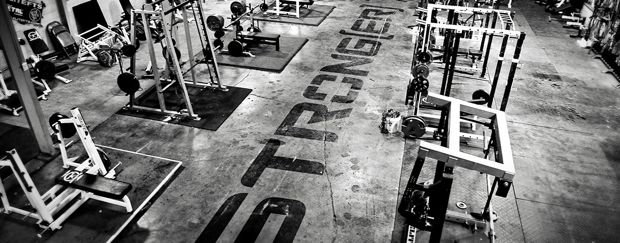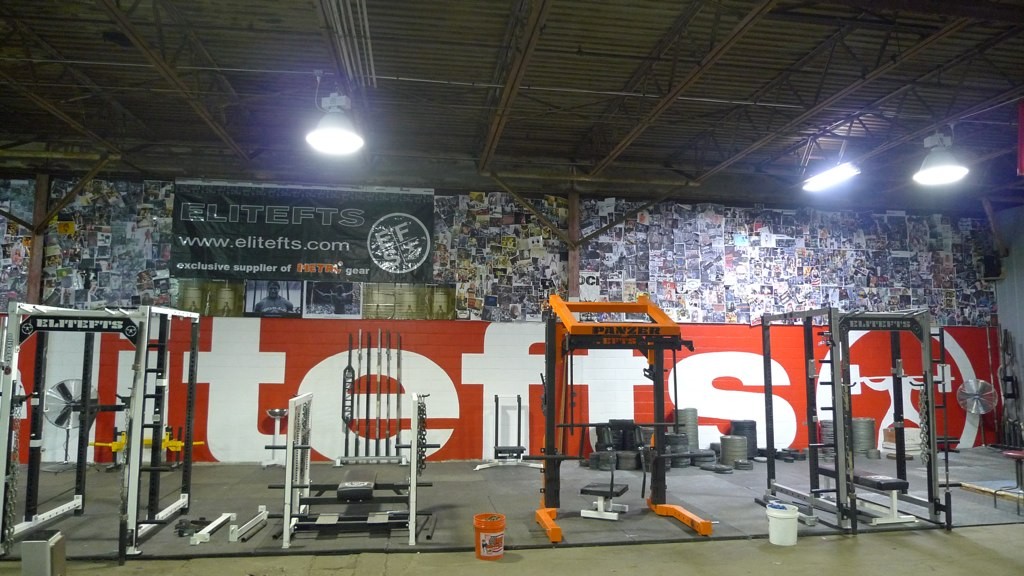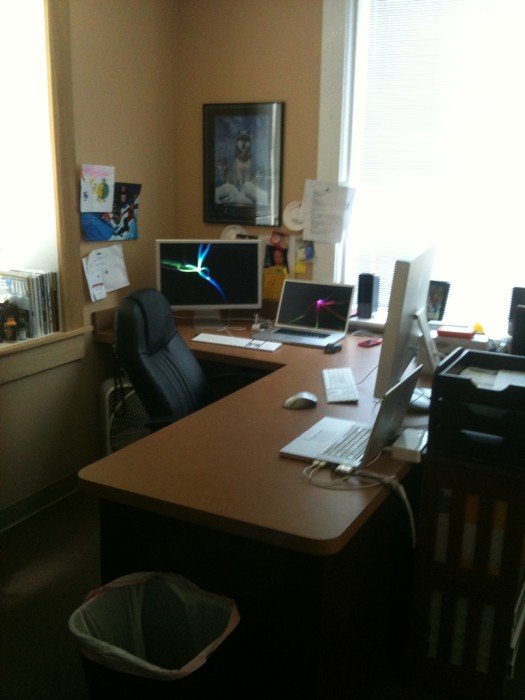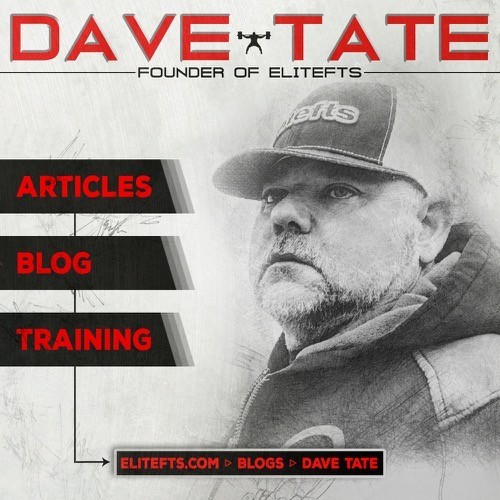
There is a time in every man’s education when he arrives at the conviction that envy is ignorance; that imitation is suicide; that he must take himself for better, for worse, as his portion; that though the wide universe is full of good, no kernel of nourishing corn can come to him but through his toil bestowed on that plot of ground which is given to him to till. The power which resides in him is new in nature, and none but he knows what that
is which he can do, nor does he know until he has tried.
– Ralph Waldo Emerson
We see it every day: people looking at how other people train, what equipment they use, how proper their technique is, what special exercises they do, what supplements they take, what type of diet they’re on, who they train with, etc. The list goes on. We’ve all read and said things that could be taken as absolutes. If you do this and then this, followed by that, you will get X result.
Most of us have used a multitude of different programs, but eventually, we concluded that none of them produced the results we were/are looking for.
All programs work, some better than others, but in one way or another, they are incomplete. From a general standpoint, we are all the same, which is why beginners see results so quickly. When we push past the norm, we find that each of us responds differently to training. Some do better with a wider stance squat, some with higher volume training, others with lower volume, and some have disabilities or weak points that make their training situation unique. The combinations are endless.
Most of us have already figured this out and have a reasonable basis of what works for us. We use the education and information of others to fill in the blanks or overcome sticking points. We understand that we are all different and have to try different things until we get the desired outcome.
This search for information may require looking outside our world to gain an advantage or overcome a sticking point. I’ve known lifters to consult physical therapists, doctors, massage therapists, sports physiologists, strength coaches, yoga instructors, chiropractors, nutritionists, herbalists, pharmacists, veterinarians, and more. You name it, and I’m willing to bet I know -or can find- a lifter who has tried to use it to help their training.
We learn in the gym that we have to be “real.” Those who are not real in their perspectives will not last long and are destined to fail. You have to accept the circumstances you are given and not waste time wondering why you are not the same as so-and-so. You can’t feel sorry for the fact you tore your pec, blew out your knee, or that your bench has gone nowhere in two years. We learn to gauge where we are at any given time by how the weights “feel.” We train, expecting the best yet knowing that the outcome carries with it a degree of uncertainty. We understand that the best training cycle may not always equal the best meet day and that a bad training cycle does not necessarily lead to a bad day on the platform.
We learn to train using intangible feedback in a sport that carries much uncertainty. We learn to thrive in chaos and use everything we can to get stronger.
This lesson can set us apart from others in the business world as well.
In business, much like the gym, we need to learn to separate the BS from reality. It’s effortless to lose sight of the realities of business until you get kicked in the balls. When things are going well, it’s easy to think they will continue that way. When things are great, many people in business will sit back, party, celebrate, spend money like crazy, and not put in the hours or capital, it takes to keep things moving. Conversely, when things are crumbling, it’s easy to think there will be no end in sight. When things are bad like this, many will withdraw, feel sorry for themselves, make the situation out to be more or less than it is, quit, hide, or place the blame elsewhere.
This is where lifters have an advantage over many of our corporate counterparts. We know that if we back off training when things are going well, we will lose strength. We also see if we back down when hit with adversity that we may as well leave the sport because difficulty is part of the process.
Business is the same thing but at a higher level, carrying more risk and competition. Those that succeed know that chaos and adversity are part of the process. They come to expect and want it around. It’s when you are being tested that your view becomes “real.” When you are being hit from every direction, you learn to keep your eyes and ears open, and after a while, you begin to see the shots before they are thrown. If you’re too busy giving high fives and growing your own ego, there will be someone waiting in the wings to take it all away from you. You also can’t spend your time wishing things were different, less demanding, or easier. You need to accept the circumstances for what they are. You need to know precisely what they mean and what they can become. If you can’t gain perspective, you need to seek the advice of others to help you see things.
This is why I think things like “masterminding” are among the ridiculous concepts I’ve ever heard. The idea is not all that bad, but the way I have seen it applied ends up being a total waste of time. The way to gain perspective is to get out of your comfort zone. A group of like-minded people in the same market sector can offer you nothing except mentorship if you fall into the lower end of the spectrum. Still, even this is simply mentorship in the form of “imitation.” To succeed in business, you have to embrace your differences and the things that make you unique. The concept of doing as others have done will work to a certain point, but it will never create what really could be. If you need mentorship, find people who are outside your area of business or use focus groups of your customers. Better yet, use both.
The best lifters never imitate all the practices of other lifters. They take what they feel they can use and disregard the rest. Very few do this in business because it takes risk and realism, two things missing in most business owners.











